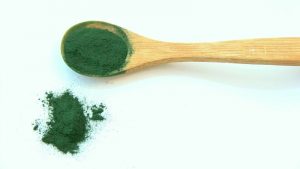Glutathione. Ever heard of it? It’s essential to the reduction of cellular aging and a huge help to many ailments…
Glutathione is a protein that we naturally produce, its main function is to protect our cells, tissues and organs.
It’s composed of three amino acids, known as glycine, glutamate and cysteine, and is located inside our cells. It’s the most powerful antioxidant in our body; some experts call it the “master antioxidant”. According to Dr. Joseph Mercola, a member of the American College of Nutrition, antioxidants are essential for eliminating free radicals from the body. Free radicals are basically very reactive particles that attack all cells, damaging everything they touch. Most come from the metabolism process, but they can also be generated by exposure to toxins, radiation and toxic metals. Cells have a series of defense measures designed to neutralize them, including glutathione.
As we age, an increase in health problems is also due to our body’s decreasing ability to produce glutathione.
This is why the consumption of this antioxidant is a very common resource in treatments related to Parkinson’s disease, Alzheimer’s disease, coronary heart disease, inflammatory conditions or muscle weakness and fatigue.

What other ailments is glutathione useful for?
- Neurological problems: low glutathione levels are generally associated with some neurodegenerative disorders such as multiple sclerosis, Lou Gehrig’s disease, spinal muscular atrophy or the aforementioned Alzheimer’s and Parkinson’s disease. If the patient keeps glutathione at an optimal level, the chances of suffering from these disorders decrease.
- Cholesterol: the presence of glutathione in the body fights the oxidation of fatty acids present in the bloodstream. This action delays the process of plaque formation in the arteries, a major cause of heart problems, strokes and, of course, cholesterol.
Glutathione protects cells from free radicals and oxidation.
- Toxicity: as Epic Science Society explains, glutathione is a defense agent against the toxicity of xenobiotics, that is, it protects the body from the damage caused by the consumption of drugs, environmental pollutants and carcinogenic substances.
- Lung diseases: this important antioxidant is famous for inhibiting the production of most inflammatory cytokines, closely related to the health of our lungs. Virtually all lung diseases are caused by excessive inflammation of the lungs. In many of these diseases, restoring glutathione to healthier levels offers protection, relieves symptoms and promotes healing.
- Pregnancy: the role of glutathione during development of the fetus and placenta is essential. This protein acts to neutralize contaminants before they reach the baby. Indeed, there are many complications during pregnancy that are related to glutathione deficiency.

Where can we find it?
There are many foods that contain significant quantities of glutathione. According to experts, the best option is all those amino acid-rich ingredients that include sulfur in their composition, such as fresh fruit and vegetables, since once cooked their values become practically insignificant.
Here is the list of glutathione-rich vegetables and fruits, which are the ones with the highest level of glutathione per serving.
spinach
watermelon
grapefruit
asparagus
avocado
strawberries
pumpkin
broccoli
cauliflower
walnuts
garlic
tomatoes
Curcumin, and milk thistle are also an excellent source of antioxidant compounds. However, the best foods in general for maximizing glutathione are high quality whey protein. Cold-pressed whey made from free range, organic cow milk that is free of hormones.
What causes a decrease in Glutathione?
Despite consuming foods that include glutathione, some people have to resort to supplements since there are many factors that reduce the reserves of this protein in the body, thus increasing the chances of suffering from the diseases described above.
Here is what tends to lower glutathione levels in our body.
Tobacco and smoking
Stress
Infections
Intensive sports
Environmental pollution
—-
Source: Mercola





